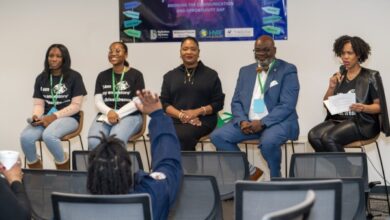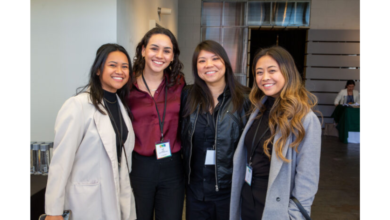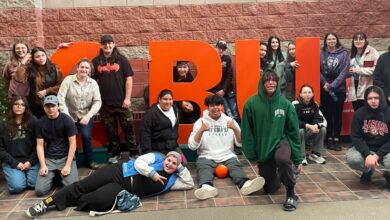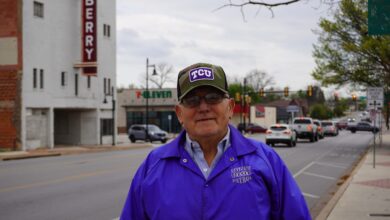Minority business week in OKC puts spotlight on disparity
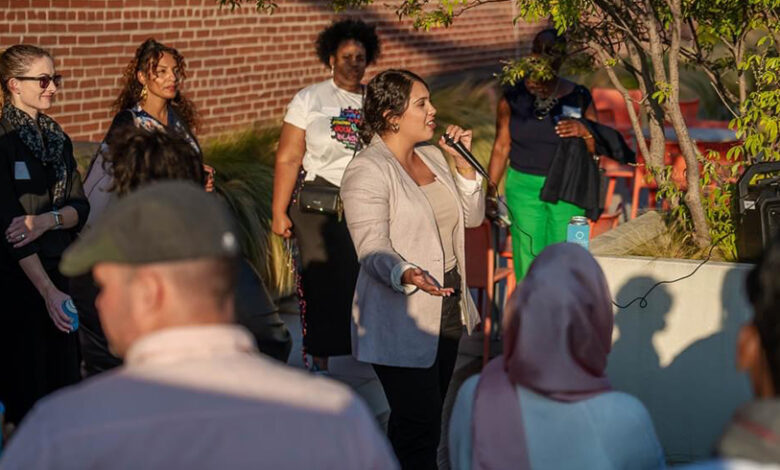
A study from Ernst & Young in 2021 found that the distribution of business ownership in Oklahoma City is not proportional to the city’s racial population distribution. What’s more, marginalized businesses in Oklahoma City still are not reaching equal levels of funding, representation and support as other businesses.
For Juliana Lopez, founder of OKC Latina, those numbers can and should change.
As the 2023 chair of Oklahoma City’s Minority Enterprise Development Week, she aims to help the city’s minority entrepreneurs come together and learn ways to boost success.
MED Week is an annual event designed to strengthen the minority enterprise ecosystem through best practices, education, networking, innovation and capital investment for the city’s minority businesses. Set for Oct. 9-13, this year’s theme of “Cultivating Community: Collaborative Growth Through Resilience” will focus on growing and celebrating the thriving minority enterprise ecosystem in Oklahoma City.
“This is our fifth year, and the Oklahoma City MED Week is part of a national initiative,” she said. “It is completely community-driven by people in Oklahoma City’s minority enterprise ecosystem.”
Oklahoma had more than 359,000 businesses statewide in 2018, of which more than 62,000 were minority-owned firms, according to the last available data from the Minority Business Development Agency. Those 62,000 firms employed over 100,000 people in 2018, and the number of minority-owned firms in Oklahoma increased 5.8% between 2017 and 2018.
Though minority-owned businesses suffered greater losses during the pandemic, they still are growing faster than other demographics in the U.S., according to a Minority-Owned Small Business Snapshot conducted by Third Way last year. On the other hand, The U.S. Small Business Association found that 40% of Black small business owners didn’t even apply for funding simply because they believed that their application would be denied.
“Fear, based on the historical traumas of this country, are real,” said Skye Latimer, vice president of social impact and culture at We The People and this year’s MED marketing chair.
“Oklahoma City could be an exceptional partner by investing in public schools by way of programming and access opportunities, setting aside additional support and resources for credit repair and building generational wealth, mentorship and the list goes on,” Latimer said. “Until we have unconscious bias, anti-racist and gender equity at the forefront of our city’s small business planning, we can’t be the great place to start a business we claim to be.”
Despite female founders receiving more venture capital than in the past, Black- and Hispanic-owned businesses are more likely to be labeled a high credit risk. Minority-owned businesses are all more likely to be shut out of financing, and women and people of color continue to get a smaller slice of government procurement.
“The trends I see working in this community is that we’re not connecting with the larger community as much as we think,” Lopez said. “I truly just think it’s a lack of understanding how the traditional business world works. Hispanic and Latino women and Black women are the highest number of entrepreneurs, and that number keeps growing, but we are not educated on topics like financing or procurement.”
She added that minority entrepreneurs are often unaware of opportunities or resources available to them. With that in mind, this year’s event will include activities like informational panels and networking events that offer small business owners opportunities to connect with local founders and explore avenues for mutual growth. Additional events will provide a platform for collaboration, learning and celebration as well.
Latimer said she has experienced change through MED Week, but inherent biases still exist for minority business owners. She said many of the city’s leadership boards that oversee grants, venture capital and small business loans are hard-wired to continue to give to businesses that are white- or male-owned.
“I believe events like MED Week and the numerous accelerators that have provided life-changing opportunities for minority businesses are going to be the catalyst for systemic changes in investment and opportunity in this city,” she said. “These proofs of concept offer visibility for business owners and the opportunity for Oklahomans to show up and show city leadership that they put their dollars where their hearts are by supporting these businesses year-round.”
For more information, including event schedules and registration details, visit OKCMed.biz.

